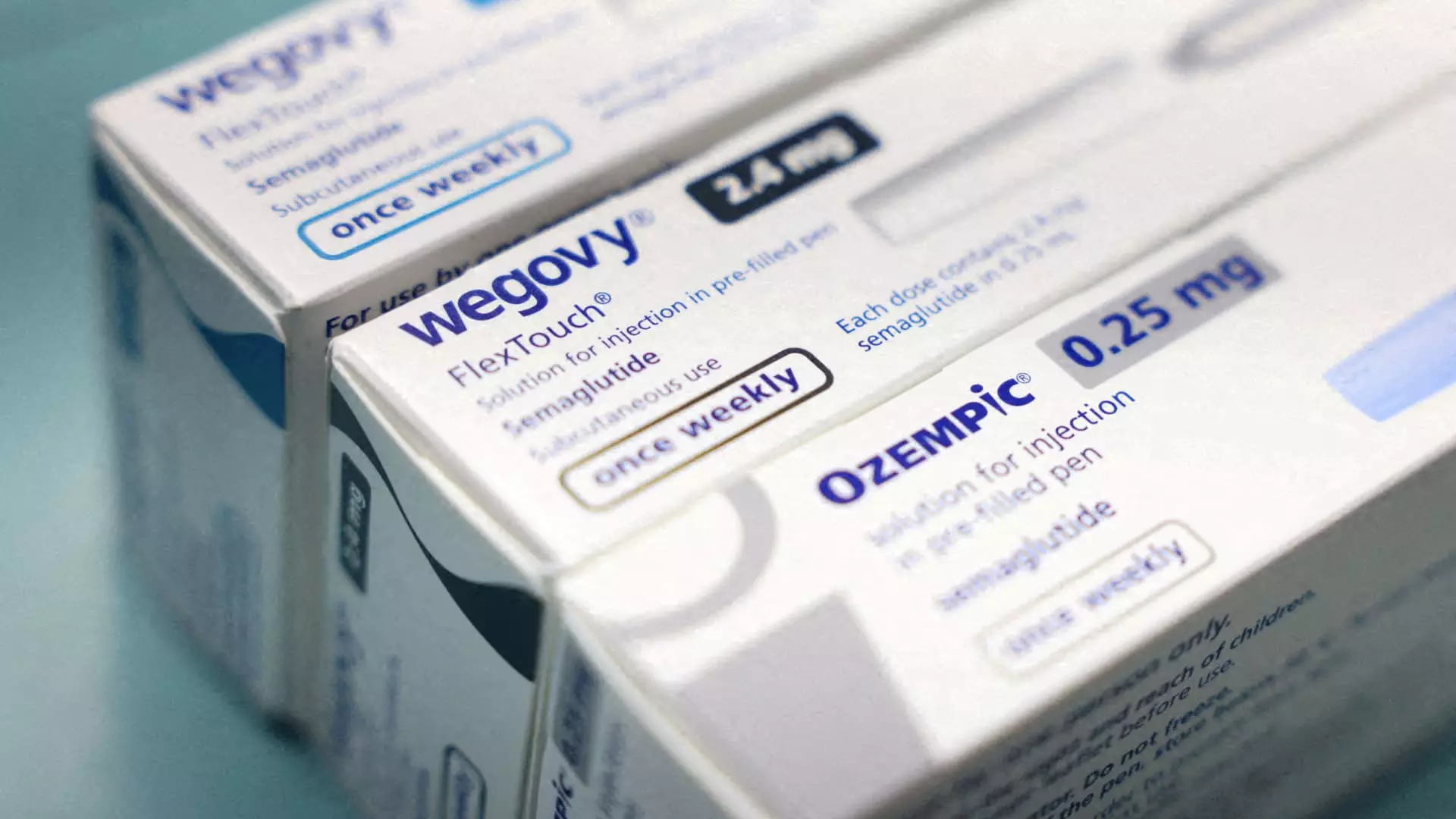The landscape of weight management and diabetes treatments in the United States has undergone a significant transformation, fueled by the recent announcement from the U.S. Food and Drug Administration (FDA). After enduring a protracted shortage of Novo Nordisk’s renowned injections, Wegovy for weight loss and Ozempic for diabetes management, the FDA has declared the crisis officially over. This resolution, which culminates more than two years of struggle, heralds a turning point for both patients reliant on these medications and the companies involved in their production.
The shortage of these injectable drugs stemmed from a rapid surge in demand mixed with limitations in manufacturing capacity. As interest in effective weight management treatments has exploded, Novo Nordisk, alongside rivals like Eli Lilly, has found itself grappling to meet the needs of consumers. The FDA’s determination indicates that Novo Nordisk has successfully ramped up its production to match current and projected needs, a development that brings both relief and new challenges.
One of the most immediate implications of the FDA’s supply reassurance is the potential disruption it poses to compounding pharmacies, which have been providing unapproved and often less expensive versions of Wegovy and Ozempic during the shortage. These small-scale pharmaceutical facilities have stepped in to fill the gap, creating alternatives for patients who found themselves without access to the FDA-approved products. However, with the FDA’s latest announcement, these pharmacies face a relatively short window—between 60 to 90 days—to cease the production and distribution of compounded semaglutide replicas.
Compounding pharmacies thrived in the midst of this shortage, providing essential access to medications for countless patients. As these pharmacies are now faced with regulatory barriers, they will need to find creative solutions to the new market dynamics. The tightening grip of the FDA on unapproved medications raises critical questions about patient access and affordability moving forward.
The response to the FDA’s announcement reverberated through stock markets, reflecting the potential ramifications for business trajectories. Novo Nordisk’s shares experienced a modest increase of approximately 5%, a clear indicator of investor confidence in the company’s newfound ability to meet demand. Conversely, the stock prices for compounding pharmacies, such as Hims & Hers, plummeted by over 25%. This stark contrast highlights the shifting realities in the pharmaceutical market, where demand for unapproved alternatives may dissipate as FDA-approved products become readily available.
Novo Nordisk’s leadership has expressed satisfaction with the FDA’s assessments, emphasizing the importance of offering safe, legitimate, and effective treatments. Dave Moore, an executive vice president of the firm, cited the crucial nature of reliance on FDA-approved products, cautioning against the dangers posed by counterfeit medications that can severely jeopardize health.
With the FDA’s decision putting Novo Nordisk back in the driver’s seat, the competition with Eli Lilly is poised to intensify. The race to seize market share in the burgeoning weight loss drug sector, recently projected to exceed $150 billion annually by 2030, is rife with potential but fraught with challenges. As different players in the pharmaceutical industry strive to innovate and differentiate their products, the power struggle will likely hinge on effective marketing, patient education, and insurance coverage.
Analyzing the future beyond the immediate supply resolution, it is important to consider the role of insurance in patient access, particularly as Wegovy faces exclusion from Medicare coverage. This aspect of healthcare accessibility will be critical in determining the success of Novo Nordisk’s products as well as the long-term sustainability of weight management solutions across diverse patient demographics.
The resolution of the supply issues surrounding semaglutide injections offers a sense of optimism to both healthcare providers and patients navigating weight management and diabetes treatment. Nevertheless, as the regulatory landscape shifts and competition heats up, there is a pressing need to ensure that new challenges do not hinder accessibility. The pharmaceutical landscape is entering a new era where significant investments in manufacturing capacity, coupled with adaptive business strategies, will be essential for sustained success. While the FDA’s announcement brings a semblance of relief, the journey toward comprehensive healthcare solutions continues, underscoring the critical importance of patient access and safety.

